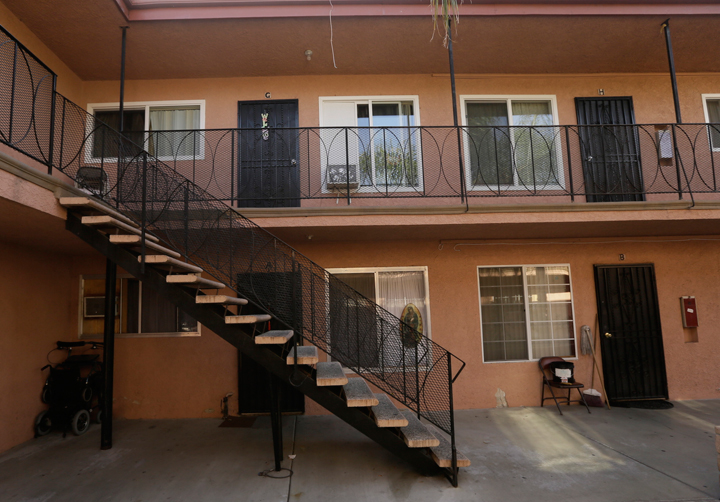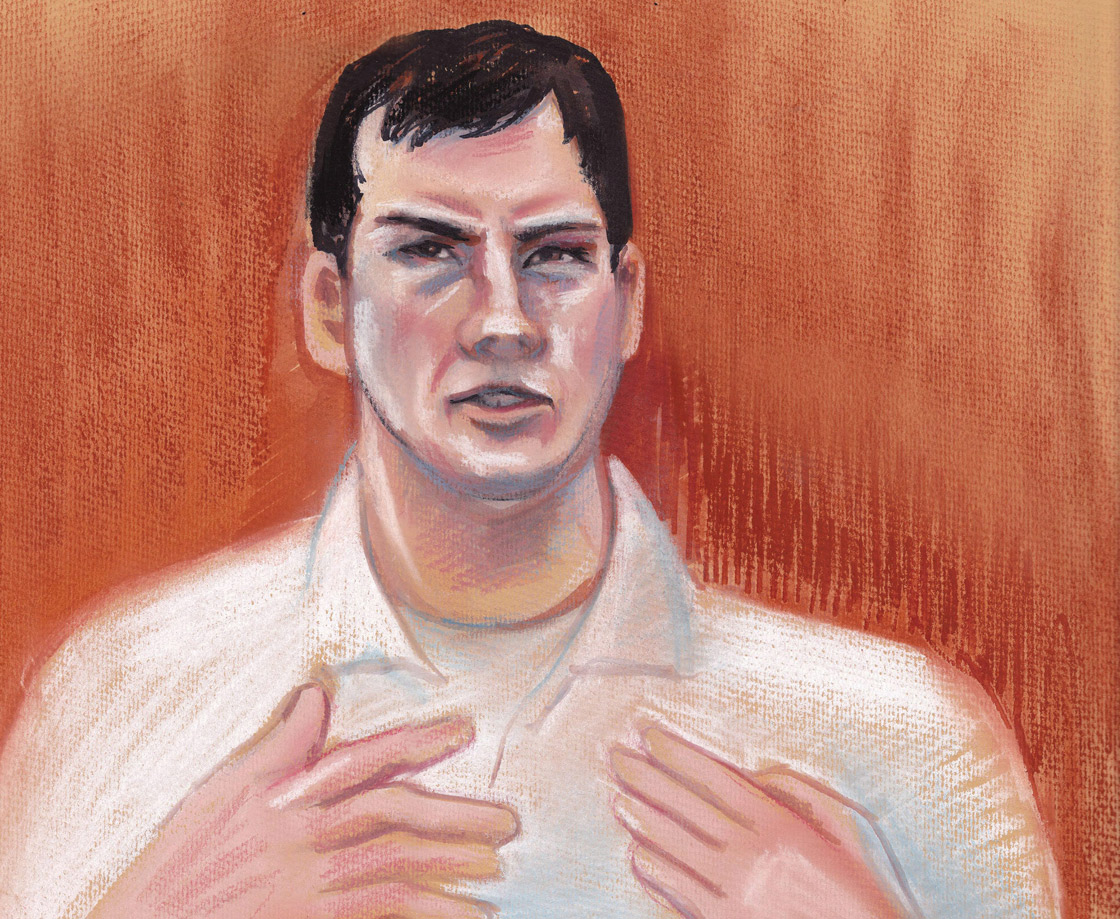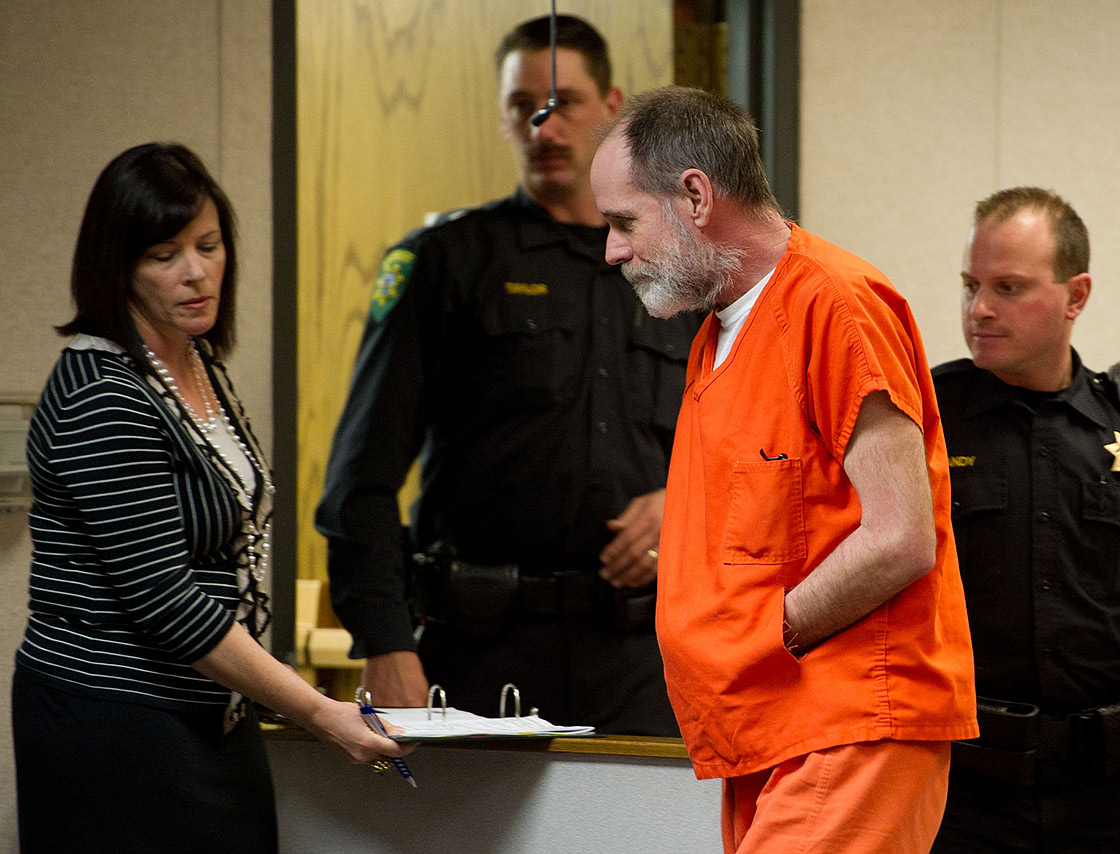TORONTO – A woman who says she was abducted by a man a decade ago who forced her to marry him and who fathered her child told U.S. broadcaster KABC-TV on Wednesday that she’s happy and blessed to be back with her family.

The woman, who kept her back to the camera and did not give her name, described being reunited with her family, and talked about the ordeal that she said began when she was 15.
READ MORE: California kidnapping, sex assault victim found alive after 10 years
Police described a decade during which the woman was made to move houses at least four times and given multiple fake identities to hide her from family and authorities.
Isidro Garcia, 41, of Bell Gardens, was arrested on suspicion of kidnapping, rape, lewd acts with a minor and false imprisonment, the Santa Ana Police Department said.
The woman said she often thought about escaping but was fearful of her abductor.
As details of the case begin to unfold, Global News takes a look at other notorious confinement cases in North America.
WARNING: details in the cases provided below may be disturbing to some readers.
The Amanda Berry, Gina DeJesus and Michelle Knight case
The three women went missing separately in Cleveland between 2002 and 2004.
On May 6, 2013, Berry broke through a locked door at their captor’s home, yelled to neighbours for help and called police.
Ariel Castro, a 53-year-old former school bus driver, hanged himself in prison on Sept. 3 after pleading guilty and being sentenced to life plus 1,000 years in prison.
READ MORE: ‘Help me! I’m Amanda Berry’
Berry gave birth to a daughter fathered by their captor; the girl was six years old when they escaped.
The Beatrice Weston case
In October 2011, Beatrice Weston was one of five people found in a cramped and dark basement in Philadelphia. The 20-year-old alleged she was locked up by her aunt and held captive in a closet for 10 years, during which her aunt allegedly beat her, forced her into prostitution and made her drink her own urine.
In August 2012, Weston announced that she was suing the city of Philadelphia for placing her in her aunt’s custody at the age of 10. Weston’s aunt, Linda Ann Weston, was a convicted felon who served eight years in prison for starving her sister’s husband to death in 1981.
The Johnny Altinger case
On April 13, 2011 a jury convicted Edmonton filmmaker Mark Twitchell of killing and dismembering Johnny Altinger in order to match a movie script in what the Crown in Twitchell’s trial called “a grand plan to become a serial killer.”
Twitchell lured Altinger to a residential garage he had rented on a quiet southside street on October 10, 2008, with a promise of meeting a woman from an online dating service.
According to details that were contained in a document written by Twitchell and found by police on his laptop computer, Twitchell clobbered Altinger on the skull with a metal pipe, knifed him in the chest and throat, and dismembered him after he watched him bleed out on the floor.
The 42-page document, titled “SKConfessions,” begins with the line: “This is the story of my progression into becoming a serial killer.”
The document uses false names, but even Twitchell admitted it reflected the events in his life during the frenzied weeks surrounding the murder.
Twitchell said his overall plan was to lure men to the garage, explain the movie, and then ask them to write about it online as if it actually happened to them.
To that end, he said, he had dressed up the garage as a “kill room” to match the dismemberment room used by his fictional hero Dexter Morgan. Dexter, the central character in a string of novels and a television series, works for the police by day but is a vigilante serial killer by night.
Twitchell said he tried to explain the prank to Altinger, but that the two fought and in self-defence he knifed Altinger in the heart.
In April 2011, Twitchell was convicted of first-degree murder and sentenced to 25 years in prison.
The Jaycee Lee Dugard case
In August 2009, Jaycee Lee Dugard was at the centre of a worldwide media frenzy when she was found alive nearly two decades after she was abducted outside her home in South Lake Tahoe, California.
Phillip Garrido, 60, was a convicted rapist when Dugard was abducted at age 11 in 1991. Guarded by a six-foot-tall fence, trees and a tarp, Dugard was kept hidden in the backyard during her confinement.
In June 2011, Garrido was sentenced to 431 years to life in prison for kidnapping, rape and holding Dugard captive for 18 years while fathering her two children. Garrido’s wife and accomplice, Nancy Garrido, was sentenced to 36 years to life after pleading guilty to kidnapping and rape.
The state of California paid Dugard a $20-million settlement under which officials acknowledged repeated mistakes were made by parole agents responsible for monitoring Garrido.
In 2011, Dugard wrote a bestselling memoir, A Stolen Life, which recounts her years in captivity.
The Elizabeth Smart case
On June 5, 2002, 14-year-old Elizabeth Smart was kidnapped from her bedroom at knifepoint, raped and held captive by Brian David Mitchell, a Salt Lake City street preacher. Mitchell’s writings revealed he took the blond-haired, blue-eyed girl so he could practice polygamy.
Nine months after she was kidnapped, Smart was found alive in Utah—approximately 29 kilometres from her home.
Mitchell, then 56, was convicted in December 2010 on federal charges of kidnapping and unlawful transportation of a minor across state lines for sex. On May 25, 2011, he was sentenced to life in federal prison without parole.
In 2011, Smart announced she was taking a job with ABC News as a commentator focusing on missing persons and child abduction cases. The case received international coverage and was the subject of a book and a made-for-television film.
Smart married her Scottish fiance in 2012.





Comments